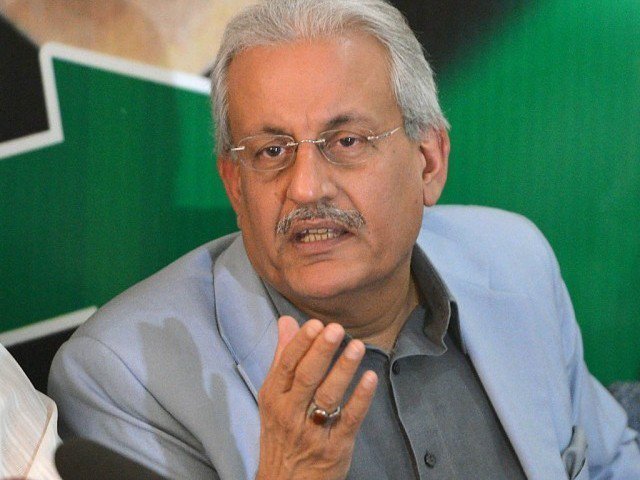
Addressing the participants of a two-day National Conference on “Federalism in Pakistan: Challenges and Prospects”, organised by the Shaheed Benazir Bhutto Women University in Peshawar on Wednesday, Rabbani shared that after Quaid-i-Azam’s death, the picture of Pakistan has completely changed.
Police, politics and power
The Senate chairman noted that during his August 1947 speech, Quaid-i-Azam Muhammad Ali Jinnah had termed Pakistan as a progressive welfare state. However, soon after his death, Rabbani said, the concept was overwhelmed by national security state and priorities changed accordingly.
He remarked that the state deliberately wanted to promote the concept of the national security state to keep the young generation aloof from its culture and history so that they are unable to question the state.
Such policies, he said, contributed towards breeding intolerance in the society - a vacuum filled by terrorism and extremism. He underscored the need for academic liberty and promotion of a culture of dialogue among the youth.
K-P police agree to cede powers to CM
Rabbani pointed out that a centrist mindset was creating hurdles in implementing the 18th amendment – a paradigm shift to give more provinces greater autonomy and making them stronger.
He added that the Council of Common Interest (CCI) had been given a new role under the 18th Constitutional amendment to provide the centre and provinces with a forum to take consensus decisions on conflicting issues. However, he lamented that forum had yet to play its due role so far. However, he said that the situation in the country was quite different from expectations and the federal was still reigned supreme over provinces and deprived them of its rights.
Moreover, he observed that health and education were provincial subjects, however, the centre had usurped the rights of provinces over these subjects.
The Senate chairman underscored that democracy and a true federal system was the only panacea for the survival of Pakistan.
Published in The Express Tribune, May 4th, 2017.
1731570357-0/elon-musk-(1)1731570357-0-405x300.webp)
-(1)1717678110-0/Kendrick-(1)-(1)1717678110-0-165x106.webp)






1732428532-0/BeFunk_§_]__-(43)1732428532-0.jpg)








COMMENTS
Comments are moderated and generally will be posted if they are on-topic and not abusive.
For more information, please see our Comments FAQ